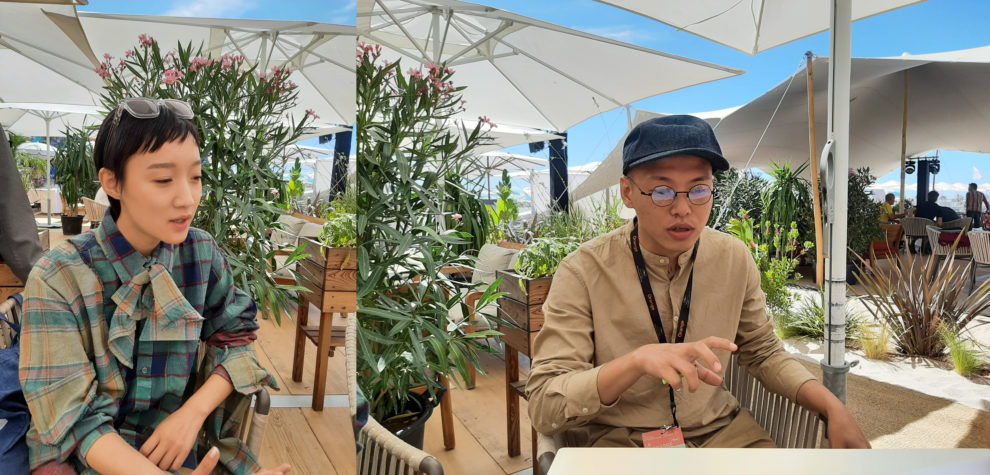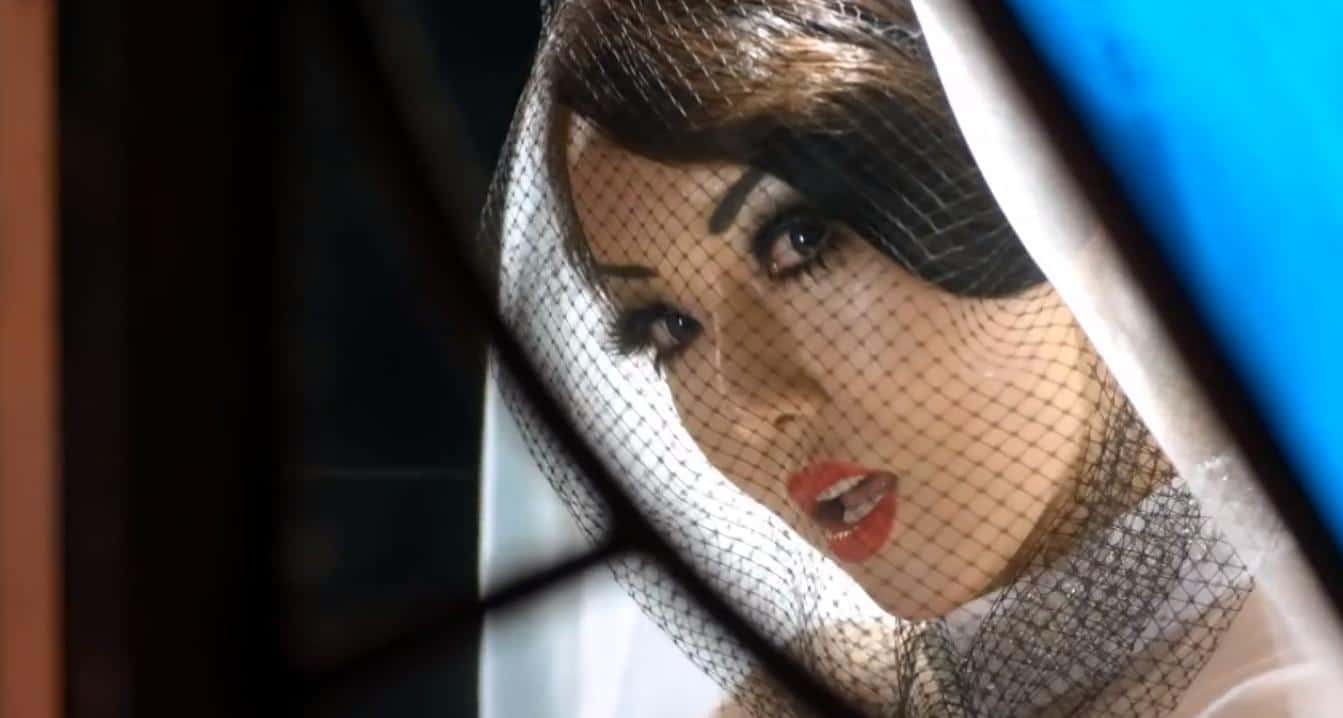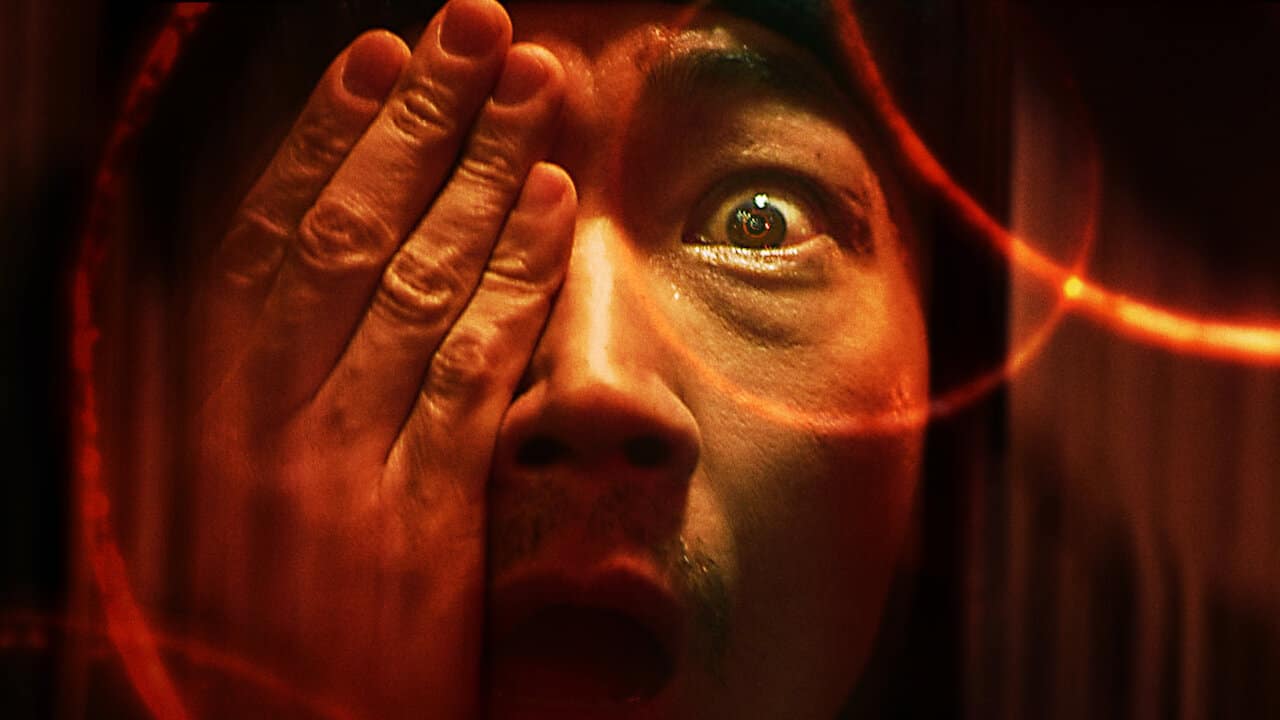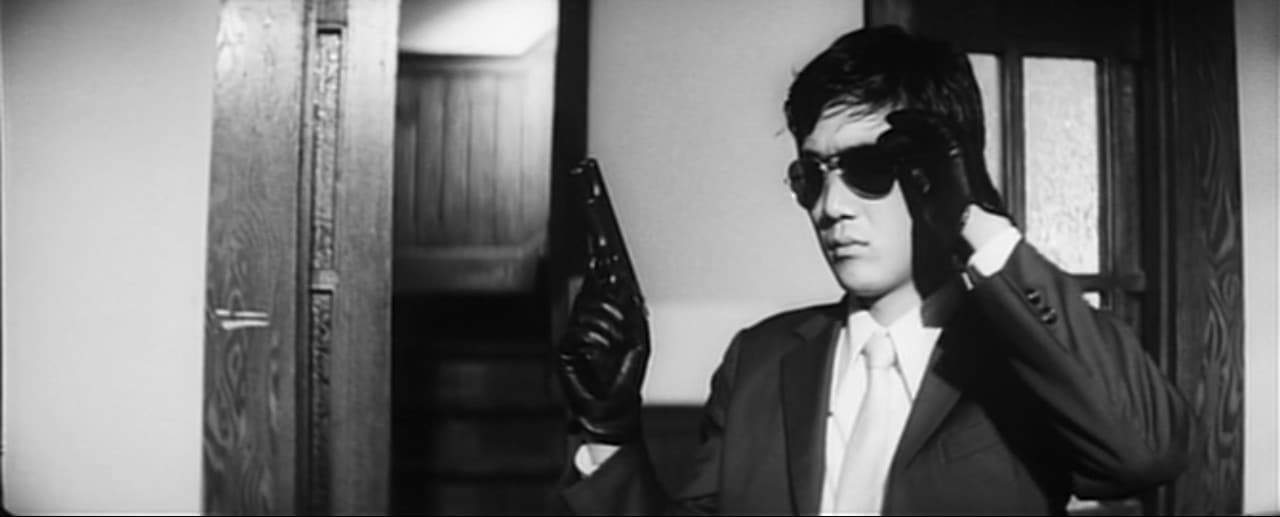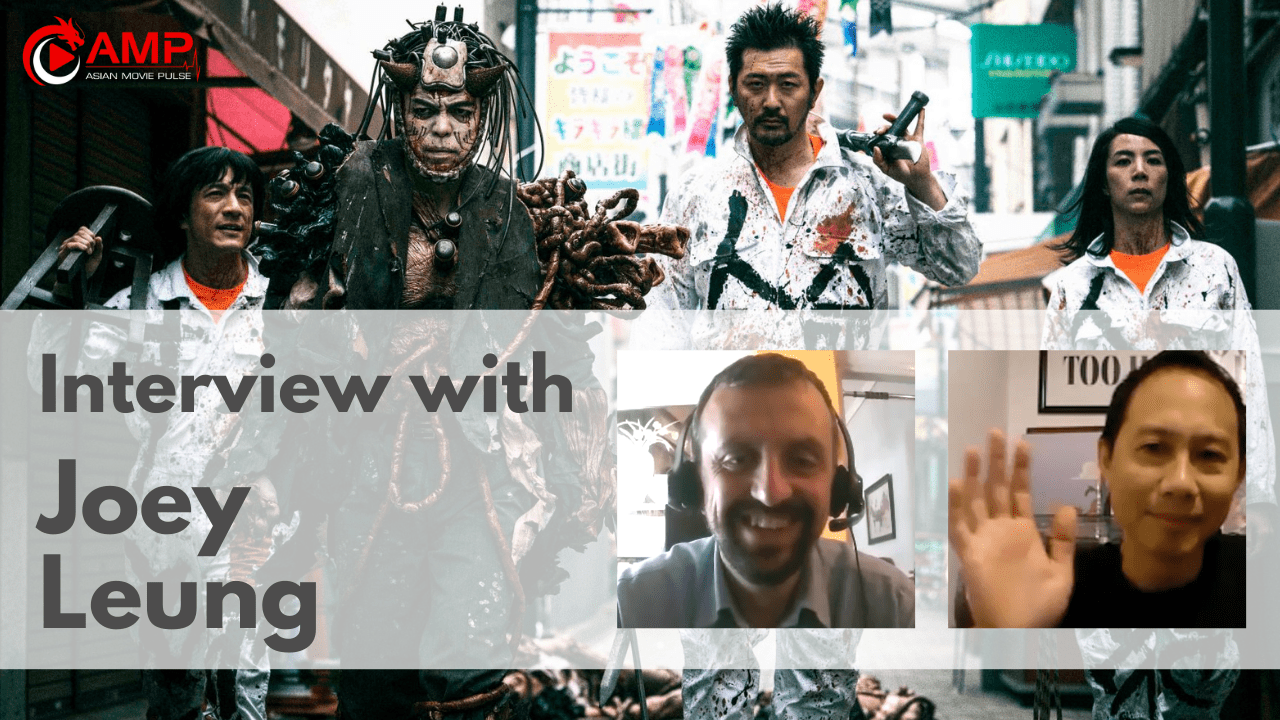The story of Na Jiazuo's feature debut “Streetwise” is set up against the backdrop of big Chinese migrations to megacities upon the turn of the century, and follows a group of different people struggling with hardships in a small town in the Sichuan-Chongqing region: a debt-collector, a not that good tattoo artist, a gangster with a soft spot for music, and a father from hell… The film competes for Camera D'Or in Un Certain Regard programme of Cannes Film Festival, which was an excellent reason to meet the director and one of the two lead actors of “Streetwise” – Huang Miyi in Cannes, and talk about the strange milieu the story was set in, about using different Chinese dialects to underline the gap between people, and about not that simple nature of human inter-connectivity.
Streetwise screened at Cannes Film Festival

(question to Na Jiazuo) Why did you set up your story in 2004?
Because that was the time of a huge migration wave during which lot of things happen. The focus is on the local people who stayed behind. They didn't go to the big cities. A lot of authors focus on the destinies of people who migrated, but I was interested in those who were left behind.
(question to Na Jiazuo) You also accentuate the emptiness by using specific light and dark tones.
That's correct. For example, the wetness of the streets was meant to create a certain type of atmosphere and throughout the film, you can see how the streets becomes drier and drier, and the photography becomes less green as well. So, that's that contrast between the yellow and the green, with yellow standing for the anxiety and the situations the characters found themselves in, and the green representing Jiu'er but also the sense of calmness in people. That's also effected through the mountains and water in the background.
(question to Huang Miyi) What was it that attracted you to the role of Jiu'er, and was it a challenge to slip into her skin?
What attracted me initially was the screenplay and the team. The screenplay was about the generation before me and I wanted to know more about that. And also thinking about the generation before me, I started to reflect upon my own life as well. One of the challenges of playing this particular character was the fact that she is ten years older than me at the moment when I was playing in the film. I hadn't experienced what she had, so I needed to understand a lot of things about her character, but also what the director was trying to reflect in the movie, also through the setting. In this particular city, there was a gap between those two people which is also reflected in the dialects they speak in: Hunan (Jiu'er) versus Sechuan (Dong Zi) which is the language of the place the film plays in. So there is a bit of ambiguity there in terms of the identity of the characters, and there was a gap between the two. So, my initial thought was that I should maybe interact with Li Jiuxiao (who plays Dong Zi) on set, but the director suggested that we didn't, in order to bring out the instinctive reactions that we might have when we are meeting people and interacting with them in real situations.

(question to Na Jiazuo) Does that mean that you were giving your actors space to improvise, or did you strictly stick to the script?
It's about 50:50. Obviously the basis is the screenplay, but I believe that the screenplay is only completed whilst the film is being edited. So, I discussed with my creative teams how we should deal with different actors. It is great when I think that the character is very close to the actor , but if the actor kind of fits the part but I feel that some treat in their personality does not conform with the character in the screenplay, I will maybe bring that out in the final process. Actors are the loudspeakers through their lines, through their acting.
There is one thing I am very adamant about, and that is who should keep the distance and who is allowed to interact closer on the set while we are doing the film. For example, Huang Miyi mentioned that I didn't want her to interact with Li Jiuxiao on the set, and that's because I wanted something raw, the awkwardness that you have when you are interacting with new people. For example, in real life, when people communicate with each other, when someone says something, there is generally a pause before the person reacts. I wanted to have that effect in the film. So I was very adamant about that particular rule.
Regarding the location, what made you select that setting for the film's story?
I chose it because it contains two extremes, aesthetically seen. You have the streets on the one hand which are very close-knit, conglomerations of buildings and people, and on the other hand – you have the water and the hills in the background. The dichotomy of the two is the reflection of the struggle of different characters in the film.
Your main protagonist Dong Zi is someone who doesn't enjoy what he's doing, but he does it nevertheless to be able to pay his father's medical bills. Theirs is also the most fascinating relationship.
In the screenplay, I felt that their relationship wasn't one of father and son. It's more of a relationship between an old- and a young man that have blood ties. The audience often likes to establish what the relationship between two people is: boyfriend-girlfriend, father-son…but what I wanted to do is to make that disappear. Both of the characters are extremely stubborn, both prone to violence, although Dong Zi likes to accentuate what they do not have in common. But you notice their similarities in small details like how they both wear shoes as they were slippers – by crushing the lining and the counter with their heels.
One of the things that struck me about the father-son relationship in the film is in the scene when the father explains she wants to have his ashes put in the same vase as his wife's, and Dong Zi's only reaction to that is ‘ok'. In a sense, you can say that they have a very specific relation of animosity towards each other, but at the same time they are also related, so there's no escape.
The story plays in the world of debt-collectors, a very specific small-criminals milieu. I didn't see it as a criminal activity, I saw it as a way of life of these characters. A lot of critics like to see it as a commercial way of portraying something. Some of them say that if you make something about a poet or an artist, that's an artistic film. For me that was just a way of life.
Can you tell us something about the casting decisions? You also have a professional singer playing a role in the movie.
When I was auditioning, I had with me the producer and all people from our creative team because I wanted them to see what I wanted to achieve with this film as well. Lots of people gave different views on the actors that we were choosing. There was this scene in the hospital that we were trying on with the father, and he was about to get fully dressed. When he was putting on his uniform, and was just putting on his second red sock, he looked at the mirror, and he looked at the other actors to see how they were dressed and he said: “We can make this film now.” He thought that everything looked well, and that it was right. Regarding the actors, we have Li Jiuxiao who is an actor with extremely bright eyes, we have Huang Miyi who is a very versatile actress, she does not only have a down to earth side to her, she has a very mundane as well. We have Sha Baoliang, the mafia character in the film who is a famous Chinese singer. He is a very heavy character, but he also has a soft side expressed through his singing in the film. All of the characters are struggling with different problems.
(Huang Miyi) This is the first time that I saw the final cut of the film, and I felt that lots of story bits should have been taken out, but these are the very images that provide a very direct message to the audience. I am not sure if you are aware of it, but the director is also behind the film's music. And this music, particularly the last song with its lyrics, reflect the essence of the film. And hearing the voice of the director, I thought that it was something that transcends both race and language.


